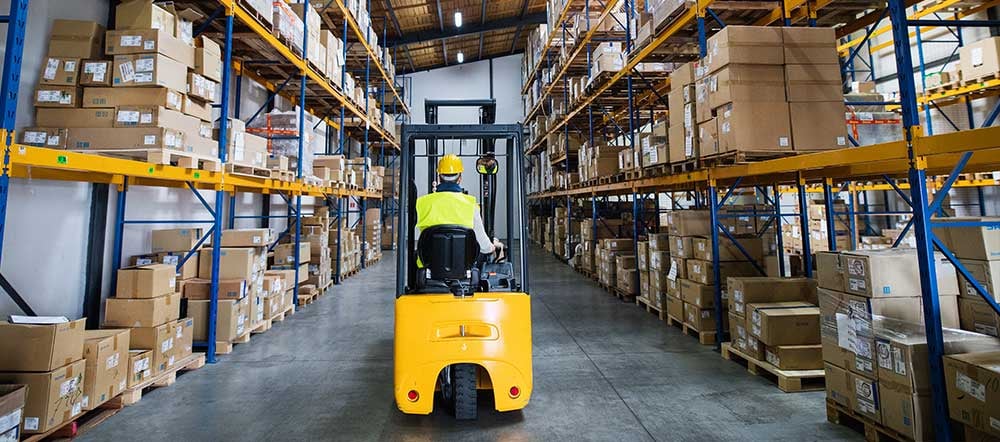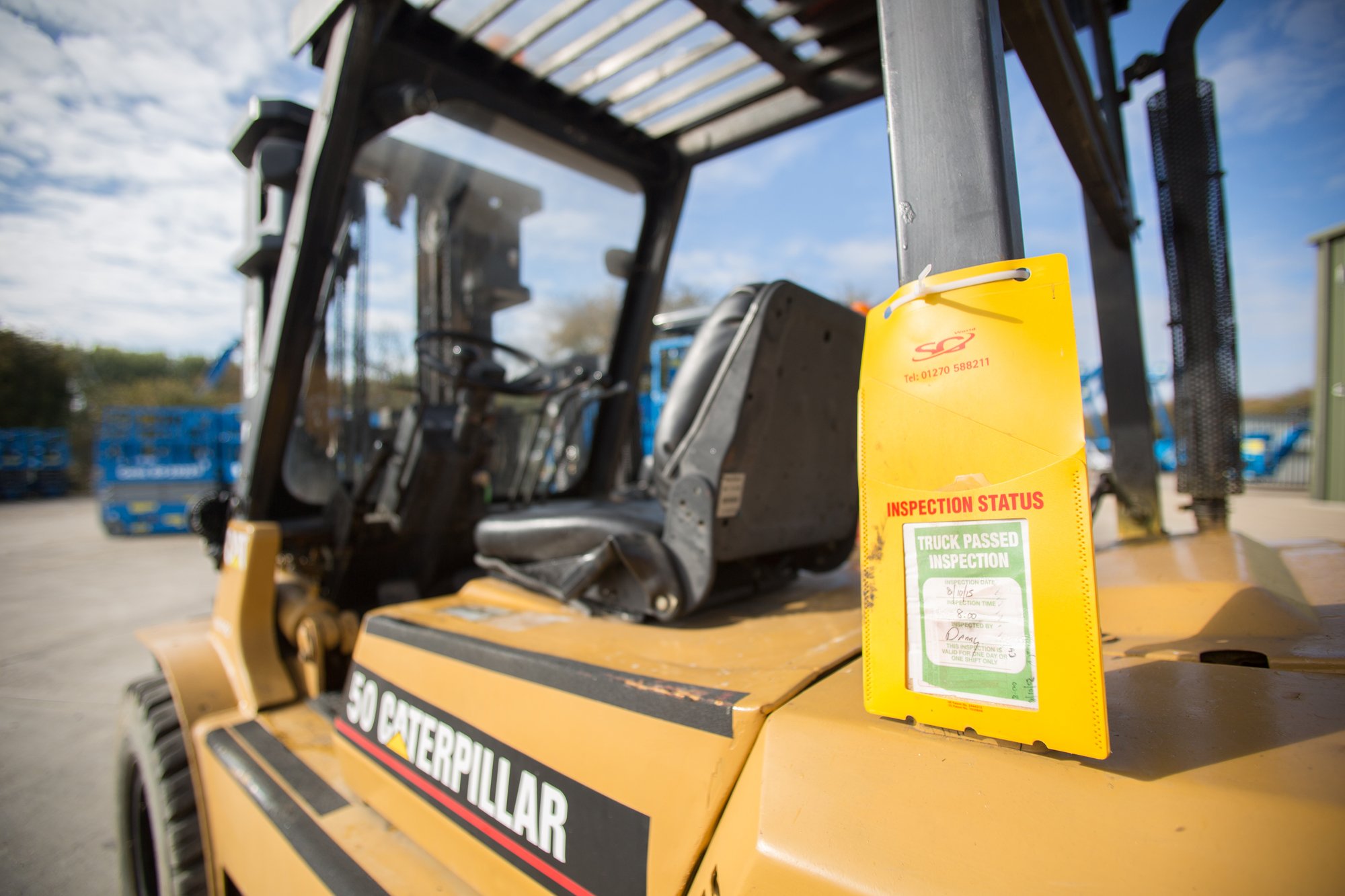What is the law around Forklift Truck Pre-Use Inspection Legislation?

There are a number of benefits of Pre-use inspection checklist solutions, such as reducing the cost of truck ownership and increasing uptime. However, the most important role of these checks is to help prevent accidents and injuries. HSE statistics, show that more than 18% of lift truck incidents could have been avoided with correctly conducted pre-use inspections. Operators should never assume that a forklift truck is safe and ready to operate even if it has been checked by another operator that same day. Damage or wear can occur at any time during use, making a lift truck unsafe to operate.
What is the relevant legislation and guidance?
There are a number of pieces of Forklift Truck Pre-Use Inspection Legislation governing forklift truck safety inspections. There are the usual top level requirements of Section 2 of the Health and Safety at Work etc Act 1974 to ensure, so far as is reasonably practicable, the health and safety of yourself and others who may be affected by what you do or do not do. The other main applicable legislation is the Provision and Use of Work Equipment Regulations 1998 (PUWER) and Lifting Operations and Lifting Equipment Regulations 1998 (LOLER) along with the supporting HSE guidance L117 Rider-operated lift trucks.
PUWER applies to all work equipment requiring that it is suitable for the purpose it is used or provided for, and is properly maintained and inspected at appropriate intervals:
Regulation 5 - Maintenance
Every employer shall ensure that work equipment is maintained in an efficient state, in efficient working order and in good repair.
70 It is important that equipment is maintained so that its performance does not deteriorate to the extent that peoples are put at risk. In regulation 5, ‘efficient’ relates to how the condition of the equipment might affect health and safety.
71 Equipment may need to be checked frequently to ensure that safety-related features are functioning correctly.
LOLER deals with specific hazards/risks associated with lifting equipment and lifting operations, Thorough Examination and inspection are key requirements. If you provide lifting equipment for use at work, or you have control of the use of lifting equipment, you should make sure that every lifting operation involving a lift truck is carried out in a safe manner using suitable equipment and is thoroughly examined by a competent person.
Regulation 9 - Thorough examination and inspection
(3)(b) Every employer shall ensure that lifting equipment which is exposed to conditions causing deterioration which is liable to result in dangerous situations is thoroughly examined and if appropriate for the purpose, is inspected by a competent person at suitable intervals between thorough examinations, to ensure that health and safety conditions are maintained and that any deterioration can be detected and remedied in good time.
The HSE ACOP Rider-operated lift trucks (Operator training and safe use) sets out practical guidance to help employers meet their legal obligations for PUWER and LOLER when operating forklift trucks.
It recommends that you always follow the manufacturer’s or authorised supplier’s instructions on inspection, maintenance and servicing and make sure there is:
- a documented pre-shift check
- a system for reporting defects and ensuring remedial work is carried out
- a planned routine maintenance system
- a periodic Thorough Examination and regular safety inspection

Forklift Pre-Use Safety Inspections
The purpose of pre-use checks is to ensure that the fork lift is in a safe and sound condition prior to being used, they may also highlight minor faults which if repaired early, will prevent them from developing into costly major repairs and breakdowns. All faults found during the checks must be recorded and immediately reported. Unsafe machines should not be used under any circumstance.
How often should you carry out a forklift inspection? Sometimes these checks are called daily checks but pre-use check is the more accurate description. Even if a lift truck has been checked by another operator that day, a forklift inspection should still be carried out when the next driver wants to use the forklift. Something could have happened to the truck to damage it or make it unsafe while it has been in use.
Who should perform them?
These tests are largely the responsibility of the operator but recent data collected by RTITB showed that 65% of forklift operators tested didn’t know how to conduct the driving and braking pre-use check correctly, two vital elements where mechanical failures should be spotted. The operator does not need to be an engineer but they should be familiar with how the forklift truck should function.
However, the employer is responsible for ensuring these checks are happening and offer suitable training to ensure operators have these essential skills. Supervisors and managers need to understand pre-use checks themselves in order to assess whether the correct procedures are being followed.
What should a forklift pre – use inspection check cover?
These are examples of the sorts of things a pre-use safety check should cover:
- Electrolyte level: The correct protective clothing must be worn when topping up or checking electrolyte levels.
- Fuel, Oil and Water levels (if applicable): Fuel, Oil and Water levels are correct – top up where necessary.
- Visual check of forks, carriage, mast: Check for distortion, wear, obvious damage.
- Hydraulic hoses: Check for damage, cracks or signs of leakage.
- Lifting Chains: Check load chain for missing pins, broken links, rust, grit or swarf, etc.
- Wheels/Tyres: Correct pressure, worn, damaged or split tyres, wheel nuts.
- Visual all round check: Check guards, covers, overhead guards, seat, seat adjuster. Check for any missing covers, loose bolts, nuts, etc.
- Safety devices, including audible warning and horn: Check for correct operation.
- Hydraulics: Hydraulic controls – hoist, tilt, reach are all working correctly.
- Foot brake: Check foot brake in both forward and reverse directions. Check for smooth operation on the forwards and reverse action.
- Check parking/emergency brake: Check parking brake holds the truck when parked and stops the truck in an emergency. Check that the emergency brake is in the correct working order.
- Steering: Check for excessive play, tightness, looseness in steering wheel linkage.
- Check floor for leaks: Check floor for leaks from any hydraulic hoses, engine compartment, etc.
Using a checklist system Even if the correct inspections are taking place, companies also need to remember to properly record the checks that take place. Without this, they may not be covered in the event of an incident. A thorough and professional pre-use check sheet will ensure that records are compliant.
A good system will not only allow the operator to record their findings, it will also display to others whether the truck was found safe/unsafe to use at its last inspection. Once the checks have been completed they need to be securely stored as, in the event of a truck failure or safety audit, they may need to be referenced.
Bear in mind that there are many different types of forklift truck and a generic pre-use inspection check sheet for all vehicles is not an ideal solution. For example, a forklift operator using a VNA will need to check different components than those using an electric counterbalance truck.
Forklift Thorough Examination
A Thorough Examination is distinctly separate from a truck's pre-use checks or regular maintenance programme (even though some of the same items are included in both regimes). It is not part of maintenance — it is an examination embedded in the PUWER and LOLER legislation. As a result, a Thorough Examination would not normally be included in a maintenance agreement, unless specifically requested.
The Consolidated Fork Truck Services (CFTS), a joint venture between The British Industrial Truck Association (BITA) and The Fork Lift Truck Association (FLTA), offer a national Thorough Examination accreditation scheme, addressing all the requirements of LOLER and PUWER. An CFTS accredited examiner will provide:- A checklist specifying what has been checked and recording any comments made
- A certificate to keep with the truck’s documents
- A sticker, affixed to the truck, to show the month and year when the next Thorough Examination will be due.
In Conclusion
Managing a fleet of forklift trucks requires regular maintenance. In addition to being a legal requirement, keeping every machine operating to maximum efficiency is key to ensuring productivity and a good return on investment. The best way to keep your forklift fleet in optimal condition is by maintaining a strict and thorough regime of inspection and maintenance.
About Lisa Robinson
Lisa - word smith to the gods.

